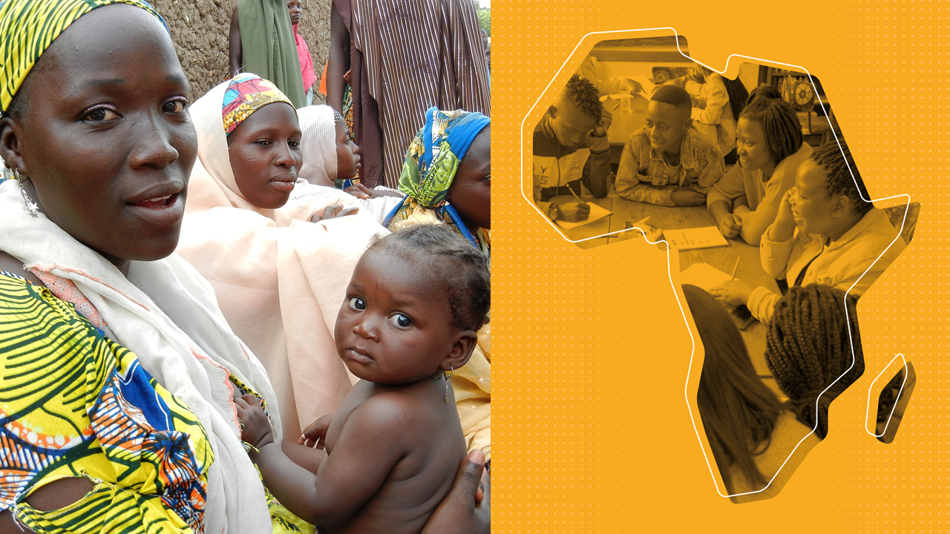
Doing research differently: reshaping research in the time of COVID-19
How is COVID-19 causing development research projects to be done differently? Ahmed Sarki, Lesley Gittings, John Young and Verity Warne share some reflections from two projects that are engaging with teenagers in South Africa, Kenya and Nigeria.
In the time of pandemic, development research teams and projects must adapt rapidly in order to ensure that their research can continue and delivers impact. COVID-19 has disrupted many traditional research practices. While this presents challenges to existing research projects, it also offers opportunities to review and revise research approaches.
How can we pivot existing research projects, and reshape research activities in the future to ensure that development research projects better support equitable partnership, empower and build the capacity of Southern researchers, and deliver tangible outcomes?
These are the issues discussed at a recent webinar convened by Oxford Forum for Research for Development (OX4RD) – a broad network of Oxford-based organisations and individuals with a commitment to development research and knowledge exchange through equitable partnerships that build capacity and have impact in the south. The forum includes academics in the universities of Oxford and Brookes, independent researchers and evaluators, consultancies and NGOs involved in research capacity building activities – such as INASP, INTRAC, Oxford Policy Management, Evidence Aid, SciDev.Net, Mokoro and Oxford University European and International Team.
Two recent research project adaptations were used as case studies to stimulate discussion, idea sharing and debate.
Remote approaches to participatory research
The Teen Advisory Groups (TAG) is a long-standing research project and part of the UKRI GCRF Accelerating Achievement for Africa’s Adolescents Research Hub. It is a participatory research collaboration between three groups of adolescent advisors in South Africa and Kenya, artists, and researchers at the Universities of Oxford, Cape Town and Toronto.
Having spent 12 years developing well-established relationships for on-the-ground research, COVID-19 demanded that TAG take its work remote, and shift focus to understanding the experiences, challenges and coping strategies of adolescents during COVID-19. But how do you engage young people meaningfully in participatory & art-based approaches research over distance and during a pandemic?
In their talk, Lesley Gittings, Nosiphiwo Lawrence and Nokubonga Ralayo reflected on actively engaging adolescents in co-designing the remote study. TAG’s participatory approach built on existing relationships and asked the young people themselves for their advice on what topics they would be interested in, what research methods might work, and how they would like to be involved. See the slides.
Online policy engagement
The School-Based Health Promotion Project in Jigawa and Kano States, Northern Nigeria is a GCRF-funded collaboration between Professor Lesley Smith (University of Hull), Bayero University in Kano, the Family and Youth Health Initiative (FAYOHI), and local Ministries of Health and Education. The project aims to identify entry points for and design a health literacy/health promotion intervention for adolescents in Northern Nigeria delivered in after school health clubs involving peer health champions and peer-to-peer learning.
The School-Based Health Promotion Project aims to co-produce a health literacy and promotion intervention with input from pupils and key stakeholders. Designed around a series of face-to-face stakeholder engagements, the original plan was to launch an intensive five-day series of events in March 2020 to review the results of the research so far, provide training in policy engagement and research communication and a research-writing workshop for researchers. Ahmed Sarki (from the Aga Khan University, and FAYOHI) and Andy Nobes (from INASP) explained how the project has pivoted from primarily face-to-face to online research and policy engagement. See the slides.
You can read an illustrated narrative summary of both talks here.
Key themes
Seven key themes emerged from the two case studies during the discussion: building trust, remote data collection, bias and authenticity, ethical challenges, realism, avoiding the digital divide, and reshaping relationships.
1. Building trust
Co-creation is a crucial aspect of research project success, but fundamentally relies on trust, which can be difficult to build and maintain in ordinary face to face circumstances, and even more difficult virtually.
Both research projects had already invested time (pre-COVID-19) in building rapport with research partners, which has made remote research easier.
But, co-designing the adapted remote research approach has led to many new lessons for the TAG team about how to engage with young people. Underlying many of these lessons is the importance of shifting power towards adolescents and a requirement for deep listening. “Use open-ended questions; be led by them; find the right time to contact them and make sure they can find a quiet space to talk to you; and have a well-developed strategy to be able to respond if asked for help and support; and always expect the unexpected.”
2. Remote data collection
During co-creation the ability to eyeball and pick up on other non-verbal cues helps to steer progress but can be more difficult to replicate online (even where fibre optic speeds are excellent).
For the TAG team, is has been important to work with researchers who understand the types of environments that participants will be in while undertaking phone interviews. In addition, being aware of other cues like short answers or long pauses becomes really important. Having participants set the terms of engagement (when they talk, for how long, what they speak about) also allows participants direct the research encounter.
Although there are a lot of cues that get missed, remote methods might also have additional benefits based on the form of data collection. For example, young people are used to engaging each other over social media and might share differently in group and non-face-to-face spaces.
3. Bias and authenticity of response
Bias is a concern in all research activities, and different methods – whether in person or remote – carry with them different potential biases. For example, participants might feel more comfortable speaking one-on-one to a researcher, be it on the phone or in person, than they would to a group. Online participants may feel more inhibited in some ways because of being in a group space and the possibility of confidentiality breaches, but also possibly more free because they are behind a screen.
The schools health project emphasised the need to be careful in selecting partners and the need to use a range of approaches (such as emails, frequent meetings) to validate information received and ensure that the authenticity of responses is not comprised by the lack of relationship building cues that much face to face participatory research relies on.
The TAG team also referenced the importance of triangulating across methods along with co-reflexivity (ourselves as researchers and also with the input of adolescent advisors), as strategies to guard against bias.
4. Ethical challenges
However, remote methodologies also come with their own risks and ethical challenges. Engaging groups over social media can raise concerns about data privacy and security. It also might not be as easy to identify and respond to situations of participant distress. The TAG team has noticed that COVID-19 seems to be exacerbating youth participant vulnerabilities. The team has been making more referrals to social services and been asked for help by participants who are food insecure and living in challenging home environments. Such referrals require advance planning, clear procedures and dedicated support.
A useful resource on that was mentioned during the conversation is Lupton, D. (editor) (2020) Doing fieldwork in a pandemic (crowd-sourced document) presented at a webinar on COVID-19 and Virtual Qualitative Fieldwork organised by NVIVO in April 2020.
5. Realism: be realistic – and be prepared to adapt quickly
For the school-based health project in Nigeria, pivoting the research-writing training component was easy. INASP has been running online research-writing MOOCs for years. But the series of interactions – especially with senior decision makers in Kano was more difficult. The teams’ original plan to combine asynchronous with synchronous online interactions using a Delphi approach, gradually evolved as more was learnt about the infrastructural, health social and political realities on the ground. A much more realistic approach has now been developed combining email-based comments on a draft report, with two online webinars.
The TAG team had envisaged using WhatsApp as the main mechanism for participants to interact with each other and the project, but switched to Facebook when participants suggested that would work better because they were already using it and data charges on Facebook were being waived during the COVID-19 crisis.
6. Avoid the digital divide – use a combination of approaches
Technology can both create opportunities for engagement and limit them. Phone access and connectivity issues are a clear challenge when pivoting online in many research settings, creating a bias towards participants who have better technology and network access, or who feel more confident to participate via these channels. Both projects recognised that they may well be missing some of the least connected young people, who will have important needs. In order to mitigate the potential risk of exclusion of more marginalised and vulnerable youth, online meetings in the school-based health project are facilitated by a local team who go to each site, set-up the hardware (projector, laptop etc.) and ensure a maximum number of youth benefit from any engagement.
For the TAG team, consulting with research participants has led to using Facebook as the preferred platform since it can be used without data, and can be logged into from multiple devices – meaning that participants without phones are able to borrow a phone to participate. The TAG research strategy also includes making calls to cell phones where possible, and using Facebook groups.
7. Reshaping relationships and responsibilities between Southern and Northern research organisations.
With increasing access to technology and online learning platforms, the capacity gap between researchers in the Global South and Global North is shrinking.
The pandemic has brought a sudden stop to the “parachute model” of collaborations – where researchers from the Global North collect data and return to their abodes with little or no demonstration of impact nor sustainability of the project or intervention. And Southern researchers with their much better understanding of the context have come up with innovative research methods. They are collaborating more in country and between countries and are questioning the added value of Northern research partners.
Reflecting on the positionality and privilege of Northern research, responding to the agenda and research priorities of researchers in the Global South, learning from Southern partners, building equal partnerships and collaboration models, using more accessible communication tools, and improving access to global datasets are all important issues that have long been called for and are now being thrown into even more urgent light within the COVID-19 context.
Final reflections
Both teams thought that the changes in relationships and roles that are emerging in these projects could be the start of a much wider realignment empowering researchers in the Global South. But for that to happen researchers in the Global North need to recognise this, become more culturally sensitive, and learn new ways of supporting their Southern colleagues.
Collaborative participatory research engaging those directly affected throughout the research cycle in a co-owned process is an essential part of this process. As Lesley Gittings explained:
“This is about training and learning for both ‘participants’ and ‘researchers’ but also fundamentally about shifting power through the process. Ideally, this research process and outcomes can build capacity of ‘researchers’ and ‘participants’, support acts of agency and hopefully develop practical, community-developed and led solutions. Ideally, people who are familiar with, and living in contexts where research is conducted will be driving this process, or heavily inputting into it. This type of research requires significant resources and time because it still isn’t the norm. This can feel in conflict with the pressure to publish and meet shorter project timeframes and donor demands. We have been really lucky at the Accelerate Hub to have dedicated time and support for such processes through our organisational structure, management and funders. I hope this will become more the norm in this type of research.”
Image credit: Susan Elden/DFID and Teen Advisory Groups

 Previous Post
Previous Post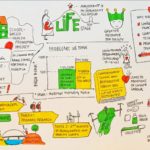 Next Post
Next Post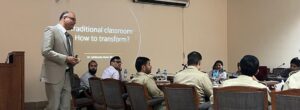
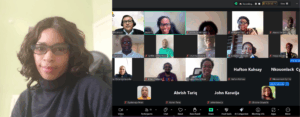

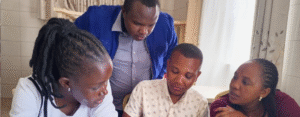
I like the way communicated